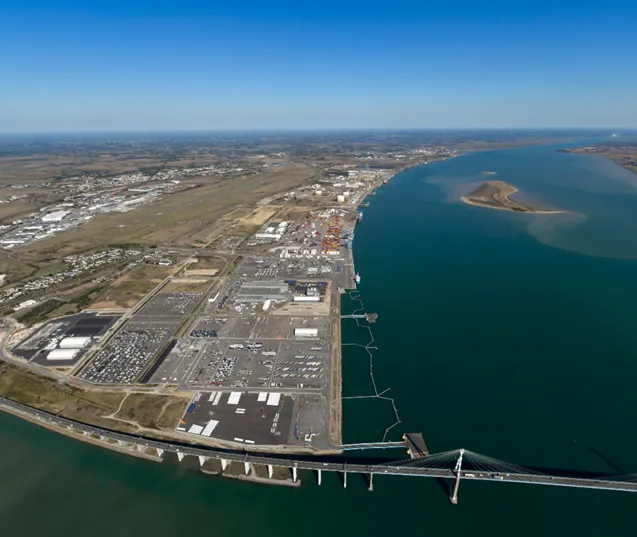In response to climate change, France has made national and international commitments to reduce greenhouse gas (GHG) emissions.
The Paris Agreement, signed in 2016 by 195 countries, aims to limit the rise in global average temperature well below +2°C compared to pre-industrial levels.
At the European level, the “Fit for 55” package, adopted in July 2021, sets a target for EU member states to achieve carbon neutrality by 2050. These goals are translated into sector-specific actions at the national level through the French National Low-Carbon Strategy
To meet this challenge, public and industrial stakeholders in the territory have launched a collective effort, which led to the Loire Estuary being selected as a winner of the “Low-Carbon Industrial Zones” (ZIBaC) call for tender
This program, managed by ADEME as part of the France 2030 plan, provides funding for studies to define the decarbonisation strategy for the zone and to guide the development of regional synergies.

The transformation of the territory will be structured around four major pillars, whose positive impact will extend beyond the territory’s borders:
Infrastructure and energy production serving low-carbon usages (industry, heavy mobility) for West of France and beyond (electricity, green Hydrogen, CO₂, low-carbon gas, synthetic fuels)
Industrial-urban heat network, Local renewable electricity production and usage, circular economy, …
Availability of land sites for the development of green industry, enhancing the region’s attractiveness…
Improved water management, climate change adaptation plans…